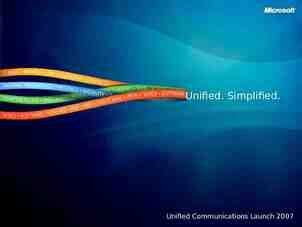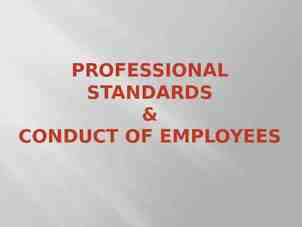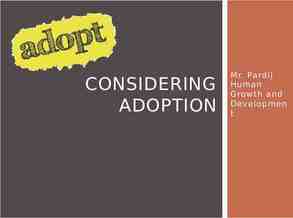Farm planning and budgeting Farm planning and budgeting o A farm
9 Slides89.09 KB

Farm planning and budgeting Farm planning and budgeting o A farm plan is a scheme for organizing farm business. It involves planning and includes a set of proposed action taken for a given period to achieve a specified goal or objective. o Budget is concerned with the financial component of the farm decisions and analysis of the probable effect of farm plan on costs of and returns from farm business.

Partial budgeting Vs Complete budgeting o Partial budgeting is used to estimate the costs of and returns from making relatively small changes in the existing farm business, ie, it evaluates first a segment of a whole farm plan. o Partial budgeting can be used to analyse the financial implications of enterprise substitution

o While considering enterprise substitution in partial budgeting, four important points are to be considered of which two relate to financial gains and the other two relate to financial losses. o Complete budgeting is employed to evaluate the financial implications of a proposed plan for a farm as a whole.

Format for partial budgeting Gain Rs Losses Rs Added return added cost Reduced cost reduced return Total total Net gain total gain-total loss If the net gain is positive, we can implement the proposed change.

Factor substitution o If the yield of fish increases by 2 % due to the introduction of weed control by herbicide application suggest whether this technique could be adopted or not. The yield obtained earlier was 5 t/ha. Price / kg Rs 3. o Additional yield realized 5,000 x2% 100kg

Gross income realized with hand weeding 5,000 x 3 Rs 15,000 Additional income obtained with herbicide application 15,300 (5,100 x3) 15,300 –15,000 300 GainRsLosses Rs Added gain 300 added cost Reduced cost 230 reduced return Net gain Rs 530 Since a net gain of Rs 530 is possible with herbicide application, it is recommended for adoption by fish farmers.

Enterprise substitution o A fish farmer cultivating local varieties of carps wants to replace it with composite fish culture technology. The per hectare costs of and returns from the two methods are given below. o The duration of both the varieties is four months. Interest on working capital is 10 %. Suggest whether the fish farmer could adopt the composite fish culture technology to enhance farm profits. Price of fish is Rs 20 per kg.

Local carps farming Composite fish culture Yield 665kg Yield 1,850kg Working capital Rs 5,750 Rs16,950 Interest 575 1,695 Total working capital 6,325 18,645 Total income Rs 20 x665 Rs 20 x1,850 Rs 13,300 Rs 37,000

Gain Rs Losses Rs Added gain 23,700 addedcost 12,320 Reduced cost reduced return Net gain Rs 11,380 By adopting the composite fish culture technology, an additional income of Rs 11,380 could be obtained. Hence, the technology could be recommended and adopted by the fish farmer to increase his income.






